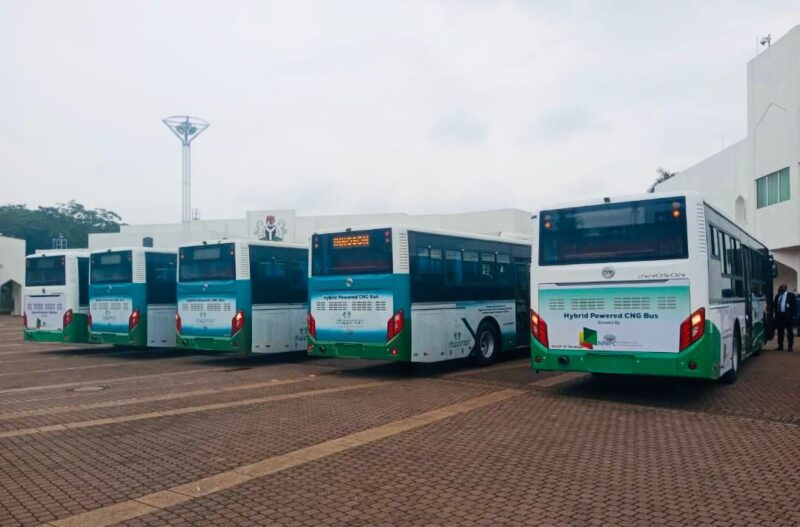The Federal Government on Thursday began distributing Compressed Natural Gas (CNG) powered buses to selected federal universities, starting with the University of Abuja. The move marks the launch of a transport project called “CNG-Sprout,” which aims to lower student transport costs and support the shift to cleaner energy within Nigerian higher institutions.
The project is the first phase of a larger scheme known as the “Project CNG Special Palliative Relief for Universities Transportation.” According to officials, the plan will eventually cover 20 federal universities across the country.
At the commissioning ceremony held in Abuja, Minister of State for Petroleum Resources (Gas), Ekperikpe Ekpo, described the deployment as a key step toward cleaner energy and economic support for students.
“I hereby commission the Project CNG-Sprout buses for deployment to university campuses across the country. May they serve as vehicles not just of transport but of hope, relief, and national progress,” the minister said during his remarks.
He noted that the buses will provide short-term relief for students grappling with rising transportation costs while also aligning with President Bola Tinubu’s broader energy reform goals. The initiative focuses on making fuel more affordable, encouraging environmental care, and improving the public transport system.
The buses are being provided through a collaboration between the Midstream and Downstream Gas Infrastructure Fund (MDGIF) and FEMADEC Energy Limited. The latter was praised for completing the initial phase of the project on time.
It will be recalled that in 2024, the government provided N122 billion to six local firms through the MDGIF to boost Nigeria’s gas sector and support projects like this.
Minister Ekpo said that this is just the beginning, with more plans underway. “In the coming months, we will be unveiling further incentives for CNG vehicle conversion, expanding refuelling infrastructure, and supporting local assembly and innovation in the CNG value chain. This is not just a transport solution. It is a jobs and industrialisation pathway,” he added.
Managing Director of MDGIF, Oluwole Adama, also praised the efforts of those involved in the project, especially FEMADEC, for their timely work.
“As we unveil the first four facilities, here in Abuja, we must congratulate FEMADEC for delivering under pressure and against tight timelines,” he said.
He also noted that MDGIF remains committed to increasing natural gas use and supporting economic growth by investing in essential infrastructure.
PiCNG Chief Executive Officer, Michael Oluwagbemi, said the rollout shows the government is fulfilling its promise to introduce CNG-powered buses to campuses.
“Through this partnership, we are delivering more than just buses and tricycles. We are delivering hope, innovation, and a future-forward solution to the mobility and energy challenges facing our academic communities,” Oluwagbemi said.
Minister of Education, Maruf Olatunji Alausa, who helped organize the participation of vice chancellors from the involved universities, received praise for connecting the project to institutional performance metrics.
“This is the first of 20 of our federal institutions that will get this. But let me tell you, look into the future, 24 months from now, literally, and I mean literally, all our tertiary institutions in the country, universities and colleges of education alike, will have each of these amenities on campus,” he said.










